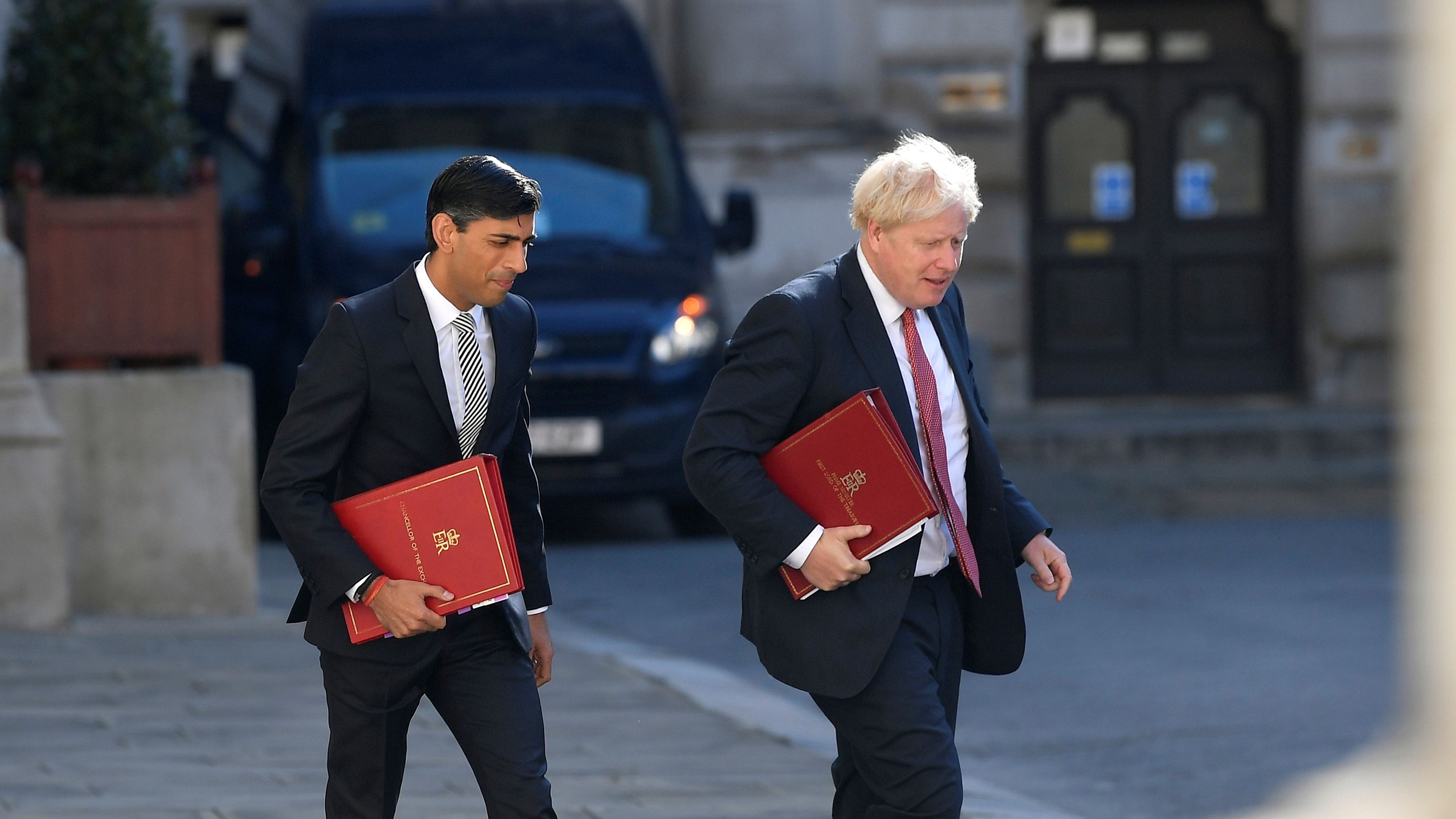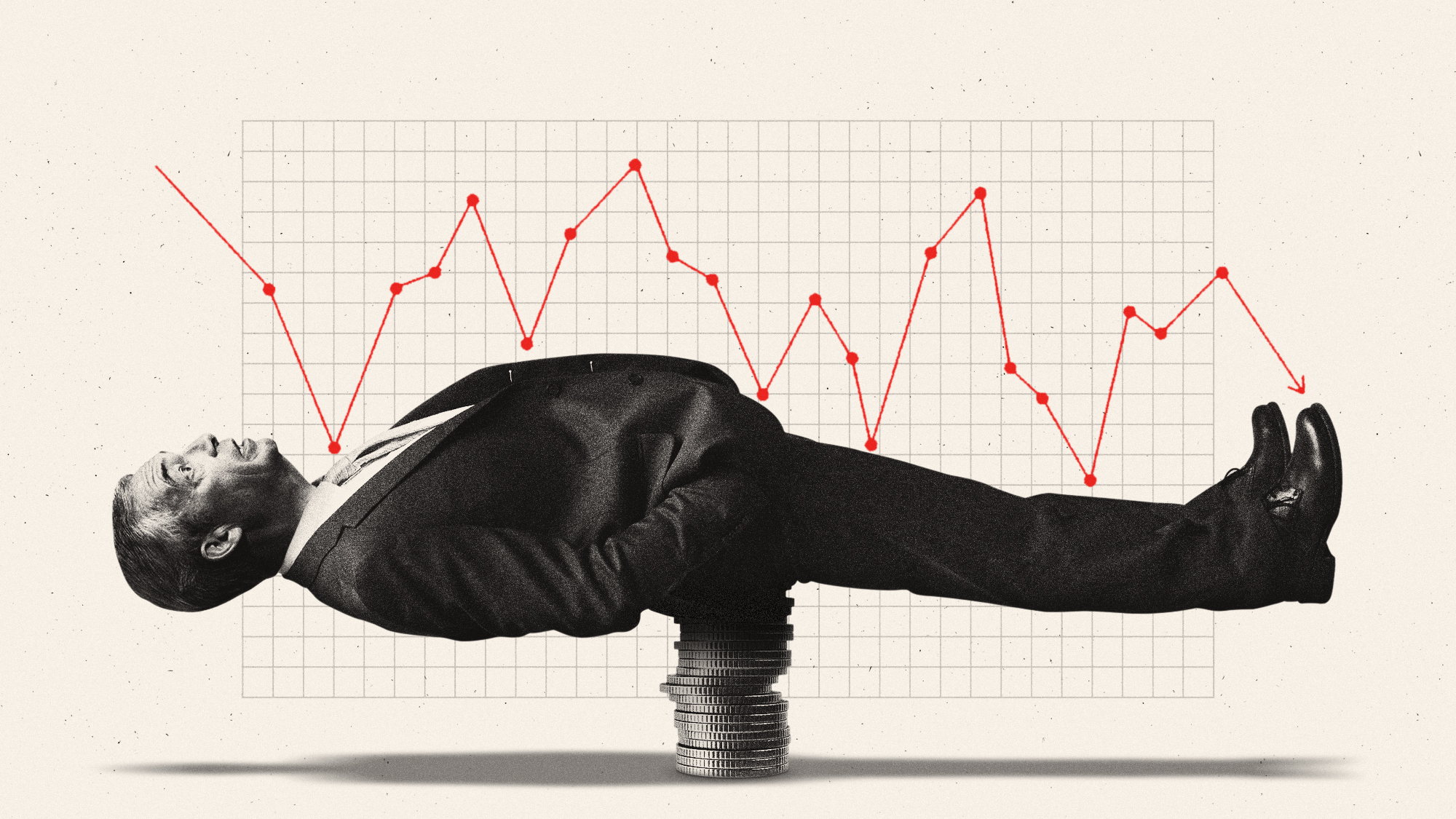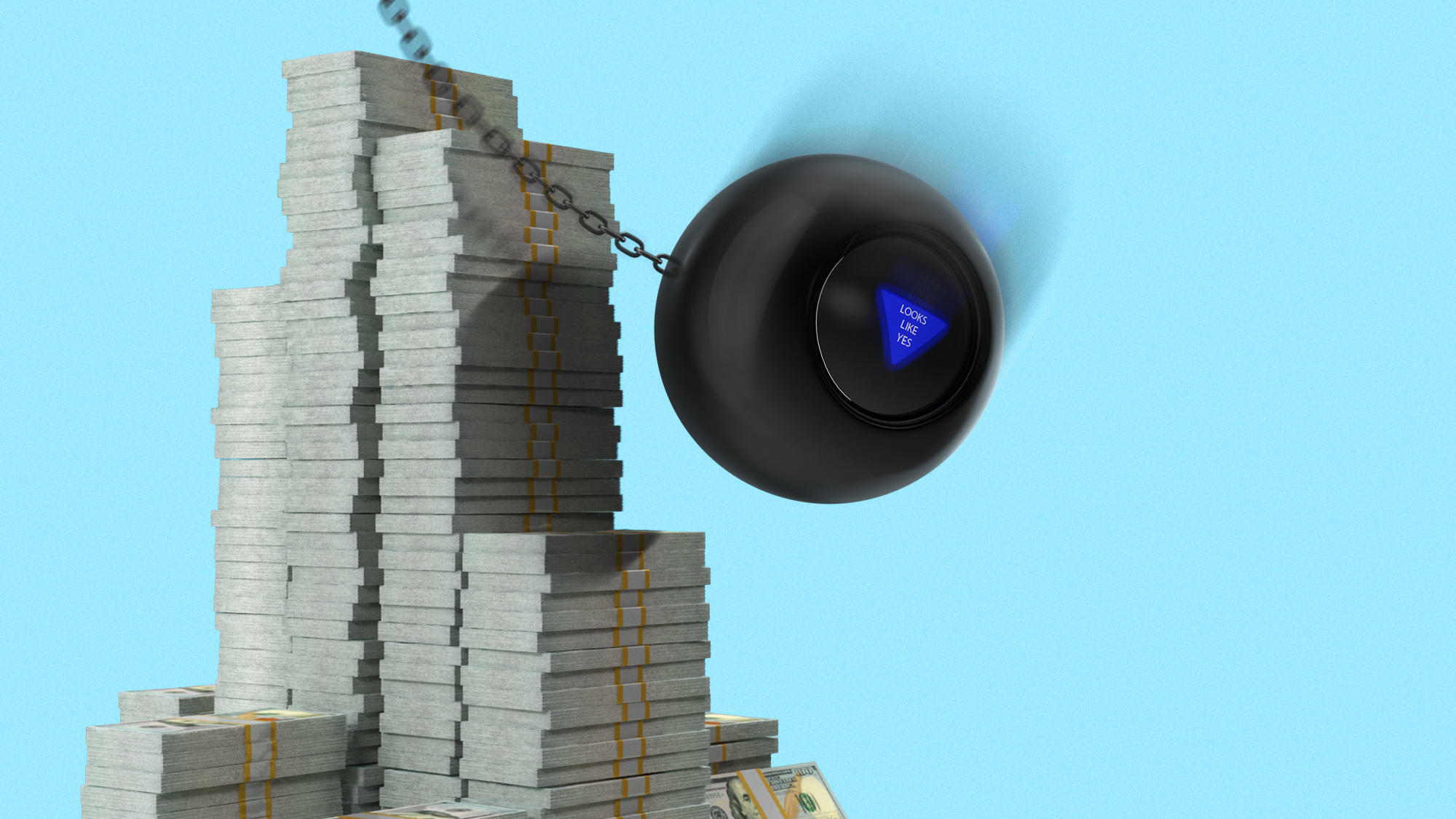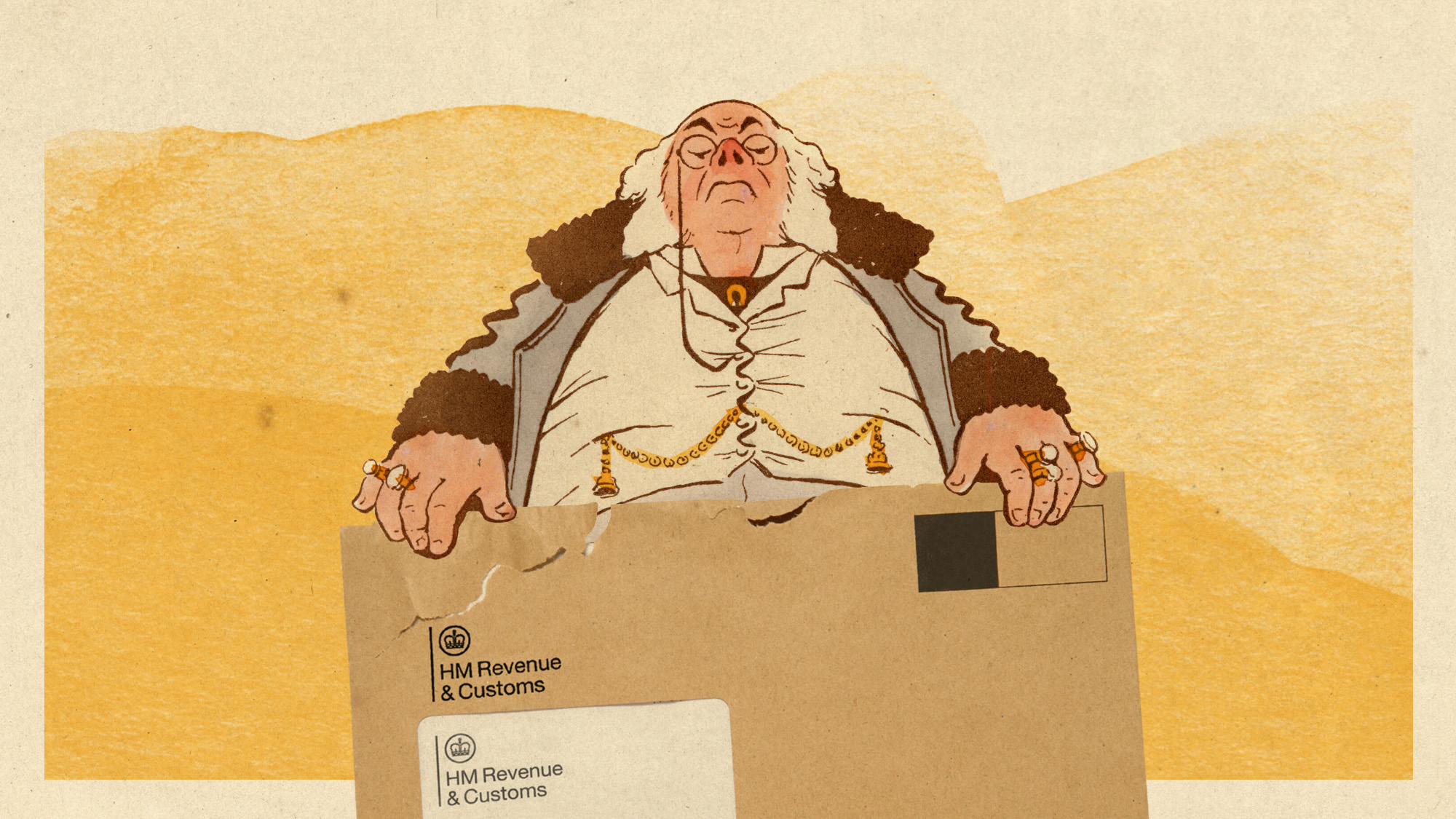Rishi Sunak warned against ‘historic tax grab’ - so how can he foot the coronavirus bill?
Conservative MPs claim planned hikes will ‘strangle’ economy as debt rockets

A free daily email with the biggest news stories of the day – and the best features from TheWeek.com
You are now subscribed
Your newsletter sign-up was successful
Tory MPs are warning Rishi Sunak that a proposed £30bn tax grab to recoup the costs of the coronavirus crisis will stifle the country’s economic recovery.
The chancellor is reportedly considering what the Daily Mail describes as a “huge fiscal raid” in the Budget in November, after emergency spending to tackle the pandemic sent Britain’s public debt crashing past the £2trn mark for the first time.
But the plans have “provoked anger among Tory backbenchers, many of whom are in mutinous mood following multiple recent policy U-turns”, reports the i news site.
The Week
Escape your echo chamber. Get the facts behind the news, plus analysis from multiple perspectives.

Sign up for The Week's Free Newsletters
From our morning news briefing to a weekly Good News Newsletter, get the best of The Week delivered directly to your inbox.
From our morning news briefing to a weekly Good News Newsletter, get the best of The Week delivered directly to your inbox.
What does Sunak have planned?
Treasury officials are pushing for the “largest tax rises in a generation to plug the gaping holes in the public finances”, according to The Telegraph.
Sources told the newspaper that Sunak is considering a “quintuple whammy” of new levies comprising an increase in capital gains tax, an assault on pensions relief, a hike in petrol and other duties, a tax on online shopping, and a “simplification” of inheritance tax.
The Times reports that the chancellor “is also considering a proposal to increase corporation tax from 19% to 24%, a move that would raise £12bn next year, rising to £17bn in 2023-24, but would put the government on a collision course with businesses hit by the pandemic”.
A free daily email with the biggest news stories of the day – and the best features from TheWeek.com
In addition, the move “would tear up Tory orthodoxy that the UK should aim to have one of the most competitive rates in the world”, adds the Daily Mail.
Meanwhile, the Institute for Fiscal Studies says that cutting pension tax relief to 20% would raise another £11bn, while a 2% online sales tax would bring in £2bn, and a 1% increase in fuel duty would make £295m.
And the reaction?
The proposals have “sparked a backlash” from Tory backbenchers, reports The Times. Marcus Fysh, Conservative MP for Yeovil, tweeted that tax increases were the “wrong response” to the Covid crisis, adding that “we need to help the economy, not strangle it”.
That message was echoed by former cabinet minister John Redwood, who wrote: “You cannot tax your way to faster growth and more prosperity.”
The plans have also been opposed by senior economists and business leaders, “who warn that raising taxes in the midst of the worst recession in 300 years would be ‘whistling in the wind’”, says The Telegraph.
Adam Marshall, director general of the British Chambers of Commerce, argues that “raising the tax burden on business and entrepreneurs before they have a chance to recover could create serious issues for the trajectory of the UK’s overall recovery.
“It could slow investment, it could slow risk taking among entrepreneurs and growth businesses. Everybody in business understands the public finances have to be repaired, but do it too early and you risk choking off growth at the crucial moment.”
Other experts are warning that tax rises would merely postpone another period of austerity, with John O’Connell, chief executive of the TaxPayers’ Alliance think tank, telling City A.M. that hikes are the “exact opposite of what Britain needs”.
“After the monumental national effort to get the country through the crisis, tax increases would mean brutal taxpayer austerity and only serve to kick the private sector while it is down,” O’Connell added.
What other options does Sunak have?
Sources suggest that Downing Street is also opposed to the potential tax hikes, with Boris Johnson said to be favouring other cust-cutting measures.
The Telegraph reports that “senior figures” in No. 10 are said to be “expressing frustration that officials are failing to present other options, such as cutbacks to Whitehall departments’ current spending budgets”.
The newspaper’s economics editor Russell Lynch writes that while Sunak is “by far the most popular member of a government struggling to get a grip on the Covid-19 crisis”, this “sheen could soon be tarnished as he seeks to claw out of the fiscal crater left by the virus”.
And the chancellor’s revenue-raising options “are hemmed in by the prime minister’s reluctance to either soak the Conservatives’ traditional supporters or return to the era of austerity” - leaving Sunak with “painful choices ahead in the autumn Budget”, Lynch concludes.
-
 The EU’s war on fast fashion
The EU’s war on fast fashionIn the Spotlight Bloc launches investigation into Shein over sale of weapons and ‘childlike’ sex dolls, alongside efforts to tax e-commerce giants and combat textile waste
-
 How to Get to Heaven from Belfast: a ‘highly entertaining ride’
How to Get to Heaven from Belfast: a ‘highly entertaining ride’The Week Recommends Mystery-comedy from the creator of Derry Girls should be ‘your new binge-watch’
-
 The 8 best TV shows of the 1960s
The 8 best TV shows of the 1960sThe standout shows of this decade take viewers from outer space to the Wild West
-
 Is the US in a hiring recession?
Is the US in a hiring recession?Today's Big Question The economy is growing. Job openings are not.
-
 Is the UK headed for recession?
Is the UK headed for recession?Today’s Big Question Sluggish growth and rising unemployment are ringing alarm bells for economists
-
 Why has America’s economy gone K-shaped?
Why has America’s economy gone K-shaped?Today's Big Question The rich are doing well. Everybody else is scrimping.
-
 Can Nigel Farage and Reform balance the books?
Can Nigel Farage and Reform balance the books?Today's Big Question Nigel Farage has, for the first time, ‘articulated something resembling a fiscal rule’ that he hopes will win over voters and the markets
-
 Autumn Budget: will Rachel Reeves raid the rich?
Autumn Budget: will Rachel Reeves raid the rich?Talking Point To fill Britain’s financial black hole, the Chancellor will have to consider everything – except an income tax rise
-
 Is the US in recession?
Is the US in recession?Today's Big Question ‘Unofficial signals’ are flashing red
-
 Pros and cons of a wealth tax
Pros and cons of a wealth taxPros and Cons Raising revenue and tackling inequality vs. the risk of capital flight and reduced competitiveness
-
 Doing the hustle: Are side gigs a sign of impending recession?
Doing the hustle: Are side gigs a sign of impending recession?In the Spotlight More workers are 'padding their finances while they can'